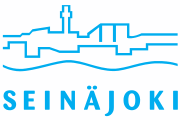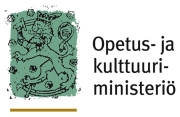Call for Papers: Creative Economy and Beyond
Maanantai 24.11.2008 12:01
International Congress on the Creative Economy September 9.-10.2009 Helsinki , Finland
Organisers
University of Art and Design Helsinki in co-operation with Turku School of Economics and University of Tampere
The Creative Economy and Beyond (CEB) Conference is a multidisciplinary meeting place for the academia, policy-makers as well as artists, creative entrepreneurs and businesses. The conference aims to look at current phenomena and identify future trends in order to understand emerging possibilities beyond the creative economy dynamics.
We welcome insights from different disciplines and approaches to critically and analytically uncover what lies beyond the creative economy. What are the skills, research approaches, understanding and operating models that allow us to identify and engage with these prospects from individual, organizational, educational and political perspectives? On the other hand, what are the implications to the changes needed in cultivating the relationship of creativity and economy and a well-being and prosperous society.
Special themes of the conference focus on the shift from tangible to intangible production, future boundary conditions of organizing, emerging business models, law and policy implications, roles of the citizen-consumers in the markets . Further themes explore how to lead creative individuals and processes, what can other sectors learn from the arts, media, culture and design and what does the shift towards a creative economy implicate for education planning, research practices and policy making.
Conference tracks are:
Track 1: Creativity in Business and Leadership
A shift from an industrial to a knowledge and experience society requires new forms of business and leadership. The creative industries are looked upon for answers in how to organize work in a new business environment. In this track, the central questions are, but are not limited to the following:
- Leading creative individuals and processes: What is the role of art and design based methods and thinking for management and leadership?
- How can art-based competencies and services be utilized by other sectors?
- How to use creativity to lead more effectively?
- Experienced bodily knowledge in leadership: How are emotions, rhythm, time, and space paid attention to in workplace interaction?
- The relationship between creativity and innovation: Are they separate or how do they link together?
Track chair: Professor Arja Ropo, University of Tampere
Track 2: Creative Regimes: Immaterial Business, Future Law, and the User of Tomorrow
The creative economy allows for, may be even demands, several strategic shifts in the boundary conditions that define contemporary markets. Issues regarding concepts such as usability, privacy, ownership, immaterial production and the very nature of usage become heightened and recast in a market regime defined by creativity and creative products, leading to institutional, cultural and legal shifts in the way in which creativity is incorporated into bigger structures. This track will address questions of how creativity is ordered and organized, all of which have the potential to change the way business activity, the nature of production and consumption, and markets are defined in the future. We welcome contributions analyzing these shifts and beyond.
Possible routes:
- Limiting conditions and boundaries in creativity; beliefs, ideas, and rules of action.
- Shifts in trade and business models: ownership, production and use of immaterial resources, goods and services
- Flows of content creation, consumption and value
- Service design and law
- Analytical work from IPR legislation to IPR regimes
- Collectives, commons and property rights: from creative commons and open source innovation to patent pools and IPR monopolies
- Strategic uses and markets for IPR
Sessions to build on contemporary cases from 2009
Track chair: Professor Saara Taalas, Turku School of Economics
Track 3: Designing our Future: Education, Research and Innovation Policy
The shift towards a creative economy poses a demanding task for the development of educational systems and reserach policy making. Methods developed in the field of design have been recently proposed as a new way to reach solutions in a world of accelerated change. This theme concentrates on the following questions:
- The role of design in accelerating multi-disciplinary education, research and innovation policy. Methods, contents and best-practices for raising the next generation.
- Strategic Design: Perspectives to global, national and local problems or organizational challenges.
- Design & Social impact: addressing complex, systemic and inherently human challenges and sustainable development.
- The Innovative Borderlines between Design and ICT.
Track chair: Professor Marjo Mäenpää, University of Art and Design Helsinki
Submitting your abstract
We welcome imaginative and interesting ideas that may not fit within the above listed areas but that open up the conference themes from unexpected and fresh angles. In addition to traditional scientific presentations, You are also welcome to propose a practical presentation or creative workshop.
If you are interested in presenting a paper at the workshops, please submit an abstract (max. 1000 words) along with a suggestion for the suitable workshop to the conference coordinator Outi Liedes, outi.liedes@taik.fi on 29th of March 2009 at the latest. Please place the title, author names, affiliations and contact information at the top of the title page.
Abstracts should provide sufficient information about the aims, methods, discipline or theory in question and the results of the research. As well as traditional scientific presentations, innovative ways of making presentations are welcome. The presented papers will be published afterwards in the conference proceedings. The conference language is English.
The time for paper presentations is limited to 20 minutes, followed by 10 minutes of discussion.
Deadline for abstract submission: 29.3.2009
Notification of Acceptance: 23.5.2009
Deadline for Full Papers: 31.7.2009
Registration opens: 14.4.2009
Download as a pdf-file here. Please feel feel to link, distribute or post.
For further information, please visit the conference website at www.ceb.fi














